Citizens from Turkey invested $2.5 billion USD on overseas real estate in 2024 – this was a 20.5% increase from the previous year. This data shows a clear trend: Turkish investors are diversifying abroad. One of the top locations for Turks buying properties is Dubai, with experts predicting that Turkey could rank among the top 5 investor nationalities in the UAE by the end of 2026.
As the trusted partner of PropertyTurkey.com and The Home of True Advice, Place Overseas is uniquely positioned to help Turkish nationals to confidently and successfully invest in Dubai’s real estate market.
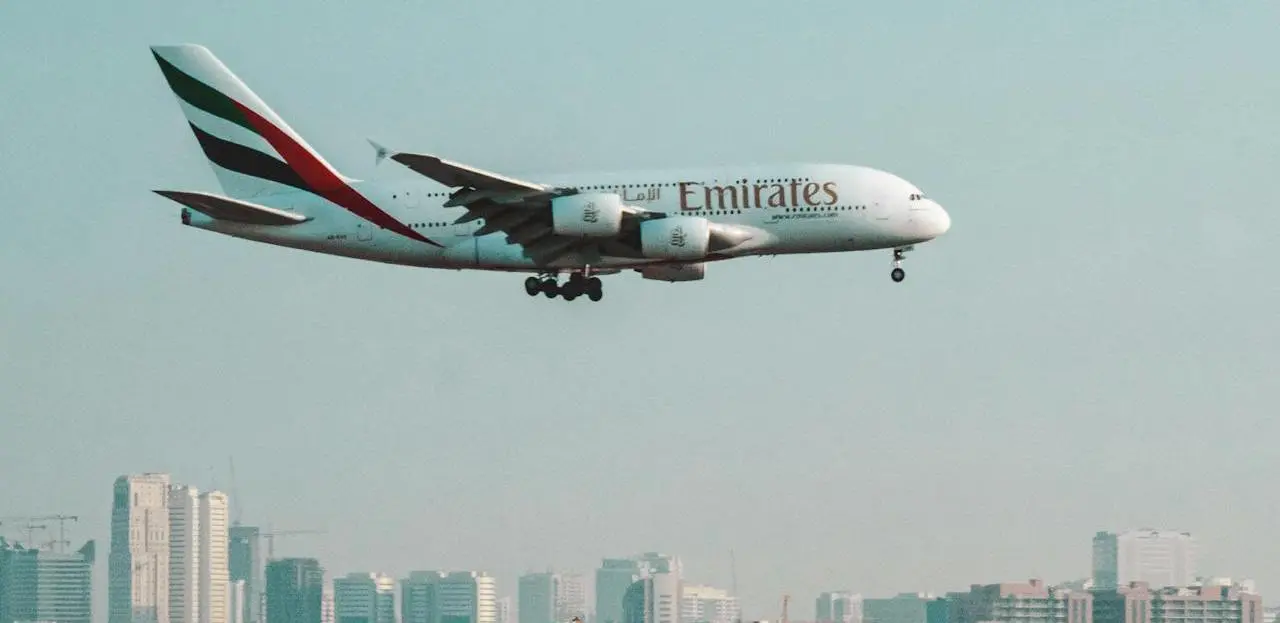
- Tax-free ownership and full property rights in Dubai freehold areas.
- High rental yields 6% to 10% in Dubai vs 3% to 6% in Turkish cities.
- Visa benefits such as the ability to apply for the UAE Golden Visa.
- Clear title deed system regulated by Dubai Land Department (DLD).
- Daily direct flights from Dubai to Turkey and flight time of 4.5 hours.
Data from the Dubai Land Department shows that in H1 2025, transactions in Dubai increased by 18.2% compared to 2024. The UAE economy is predicted to grow in 2025 by 4.5% – supported by non-oil sectors including tourism, real estate, financial services, and logistics. According to the World Bank’s Ease of Doing Business Index, Dubai ranks 16th globally, while Turkey ranks 33rd.
Over the past few years, the Turkish Lira has remained volatile and prone to fluctuation. Dubai’s dirham (AED) is pegged to the US dollar – offering currency stability long-term. Banks in Dubai also allow multi-currency accounts, meaning that Turkish investors can transfer and hold funds in USD, EUR, or AED.
From 2020 and 2025, data shows that prime residential values of real estate in Dubai have grown by over 40%. In Q1 2025, the average property price increased by 8.4% year-on-year. This is guided by a large demand in premium segments and off-plan projects.
Dubai offers some of the highest rental yields in the world. Average rental yields currently return 5% to 8% in prime areas, which is significantly higher than many European cities. Turkish investors can enjoy robust passive income by renting out their properties in Dubai.
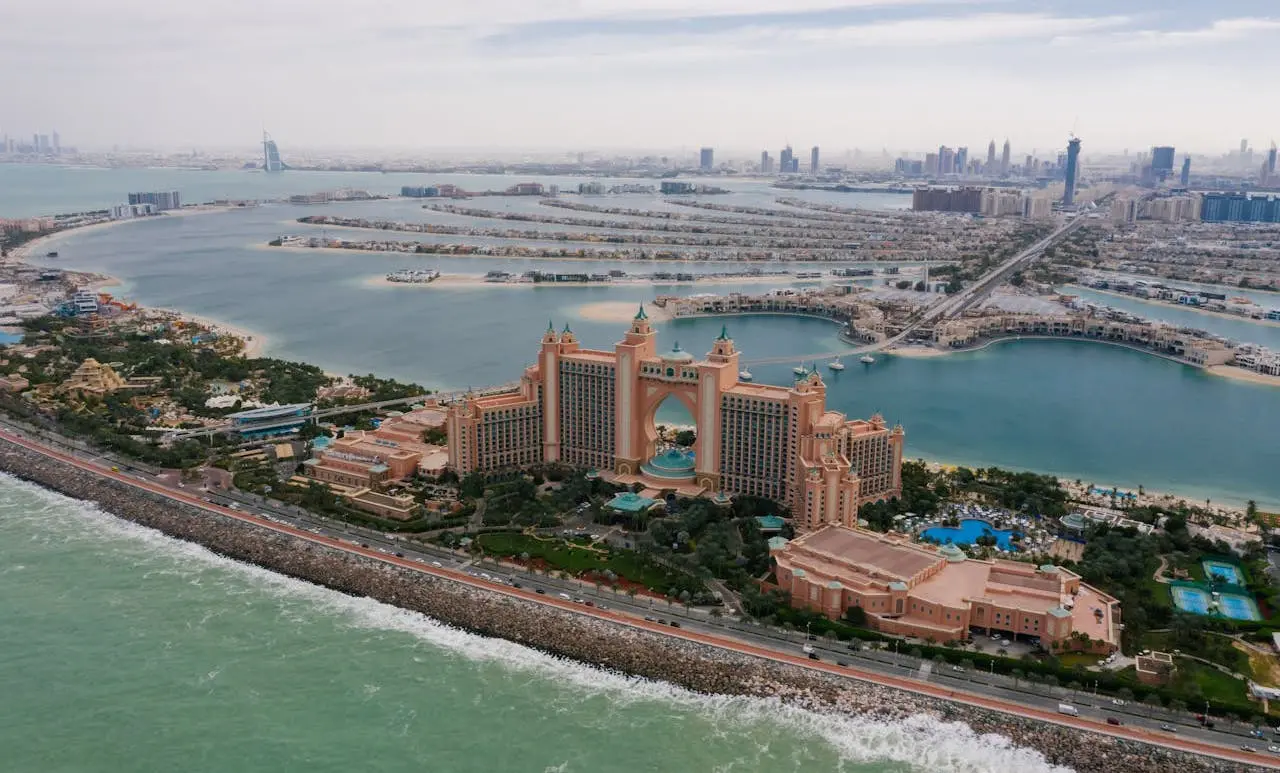
In Turkey, Istanbul dominates as the top location to invest in, followed by coastal cities including Bodrum, Antalya, and Izmir. For Turks exploring Dubai for lifestyle and investment return purposes, it’s vital to evaluate key Dubai districts, ensuring the right location in chosen in the UAE.
Home to iconic landmarks including the Burj Khalifa and Dubai Mall, Downtown Dubai is the beating heart of Dubai and can draw comparisons to Nisantasi in Istanbul, as an upscale area known for its fashion boutiques and high-end restaurants. However, Dubai’s Downtown offers better ROI and newer infrastructure. Apartments in Nisantasi return a rental yield of 3% to 4% on average, while Downtown Dubai often achieves 5% to 6% for investors.
JBR, Bodrum, and Yalikavak Marina are similar in the sense that they offer luxury amenities alongside beachfront living and fine dining restaurants. However, JBR offers high-rise towers and apartments with direct access to the beach, while Bodrum and Yalikavak offer boutique apartments and private villas. Short-term and Airbnb rentals thrive in JBR, a key appeal for investors from Turkey who might be familiar with the seasonal returns of Bodrum.
Dubai Marina is one of the largest man-made marinas in the world and is home to over 200 towers and residential projects. Dubai Marina offers a yacht club, access to a beach, and vibrant nightlife. Although it is upscale, Atakoy Marina lacks the nightlife and tourism that Dubai Marina offers. Lara in Antalya sees seasonal rentals, while Dubai is a tourism magnet year-round. Rental yields in Dubai Marina come in at 6% to 7%, compared to 3% to 4% in Atakoy and 4% in Lara.
Business Bay is to Dubai what Maslak is to Istanbul – business-oriented zones with office towers, modern residences, and financial organisations. Business Bay is gentrifying quickly and now appeals to lifestyle buyers, remote workers, and young professionals with cafes, co-working hubs, and skyscrapers designed for residential living within minutes of Downtown. Maslak, while the business and financial heart of Istanbul, can suffer from congestion and traffic issues with Istanbul city centre 45 minutes away.
A family-focused and master planned community, JVC offers modern villas and low-rise apartments suitable for families living in Dubai within close proximity to parks and international schools. The affordability of JVC and high rental yields of 7% to 8% make it comparable to Bahcesehir in Istanbul or Kepez in Antalya. Buyers and investors from Turkey appreciate the long-term growth potential and high occupancy of JVC.
Palm Jumeirah in Dubai offers a luxury living experience similar to what buyers can find in Sariyer in Istanbul or Yalikavak in Bodrum. Sariyer offers natural beauty, proximity to forests, and Istanbul’s seaside, Yalikavak offers a world-class marina, beach clubs and luxury villas, while Palm Jumeirah offers prestige, beach clubs, and a global celebrity appeal. The iconic man-made island in Dubai maintains strong resale value and rental yields come in at 5% to 6%.
Similar to Dosemealti in Antalya, Arjan is a newer community that offers more affordability, spacious homes, and green landscapes. Dosemealti is a quiet suburban area of Antalya favoured by families and expats seeking privacy. Arjan offers new build properties and is close to central Dubai with international schools and shopping malls easily accessible. This gives Arjan the edge for capital growth potential and rental income yields.
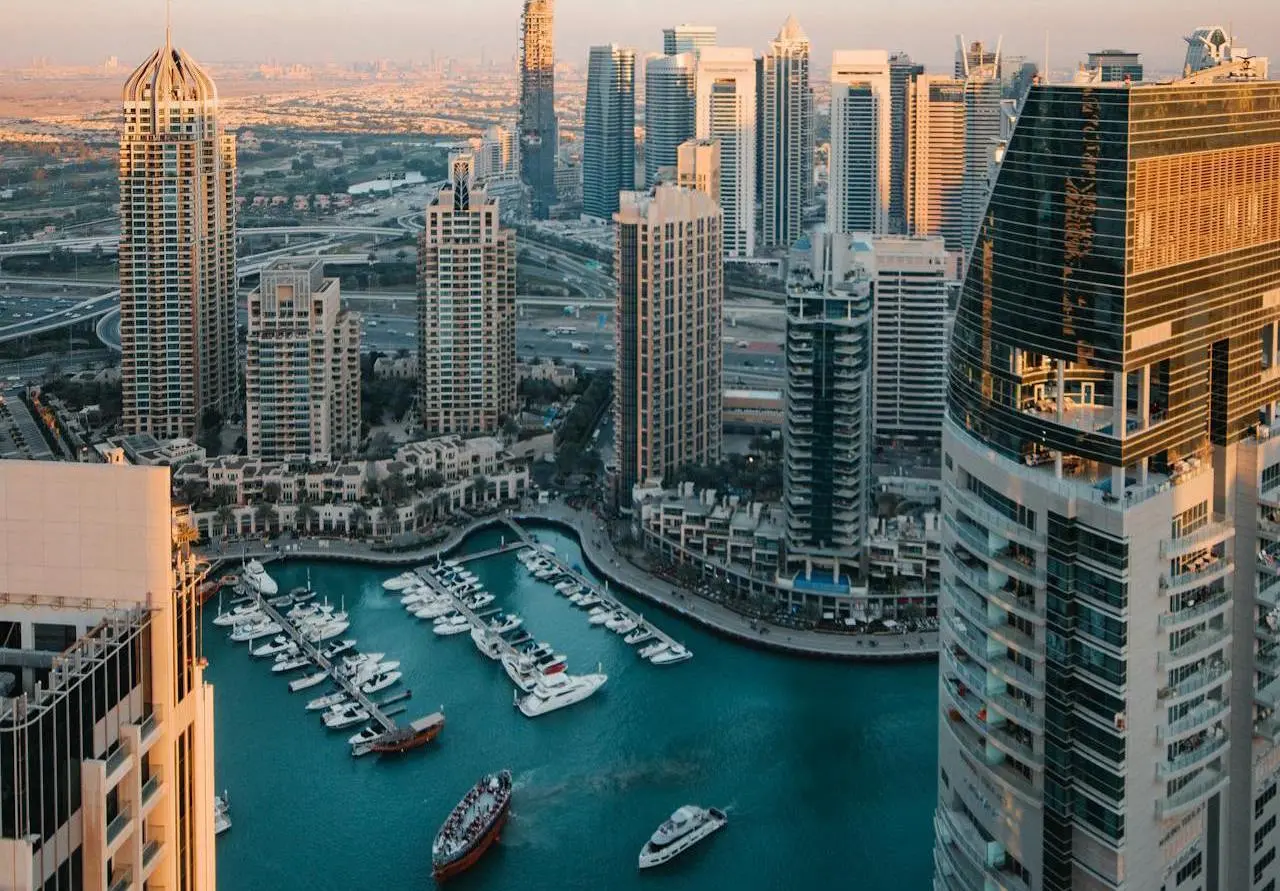
Turkish nationals are fully eligible to purchase freehold properties within designated zones in Dubai. Freehold ownership means that the buyer owns the property as well as the land it stands on. Buyers receive a Title Deed or Title Certificate issued by the Dubai Land Department (DLD).
Turkish citizens can take advantage of residency incentives offered by the UAE. These visas allow foreign buyers to live in Dubai, sponsor dependents, open bank accounts, and obtain Emirates ID cards. The easiest way to obtain residency or a visa through real estate is:
- Spend AED 750,000+: And become eligible for a renewable 2-year residency visa.
- Spend AED 2 million+: And become eligible for a renewable 10-year Golden Visa.
When buying a property in Dubai, investors need to pay a one-time 4% DLD registration fee along with a small admin fee. There are no annual fees such as council taxes or property taxes, and no taxes on the following:
- No annual property tax.
- No capital gains tax.
- No inheritance tax.
- No tax on rental income.
- No wealth tax or personal income tax.
The UAE and Turkey signed a Double Taxation Agreement (DTA) in 1995. However, Dubai property owners who are residents in Turkey may have to declare rental income to the tax office in Turkey. If the property owner is a non-tax resident in Turkey, the income would typically not be subject to tax in Turkey. It is highly recommended to consult with a cross-border tax advisors.
Turkish citizens can register a DIFC Will (Dubai International Financial Centre) to ensure that their investments in Dubai are inherited according to their wishes, whether that is to Turkish laws or international laws.
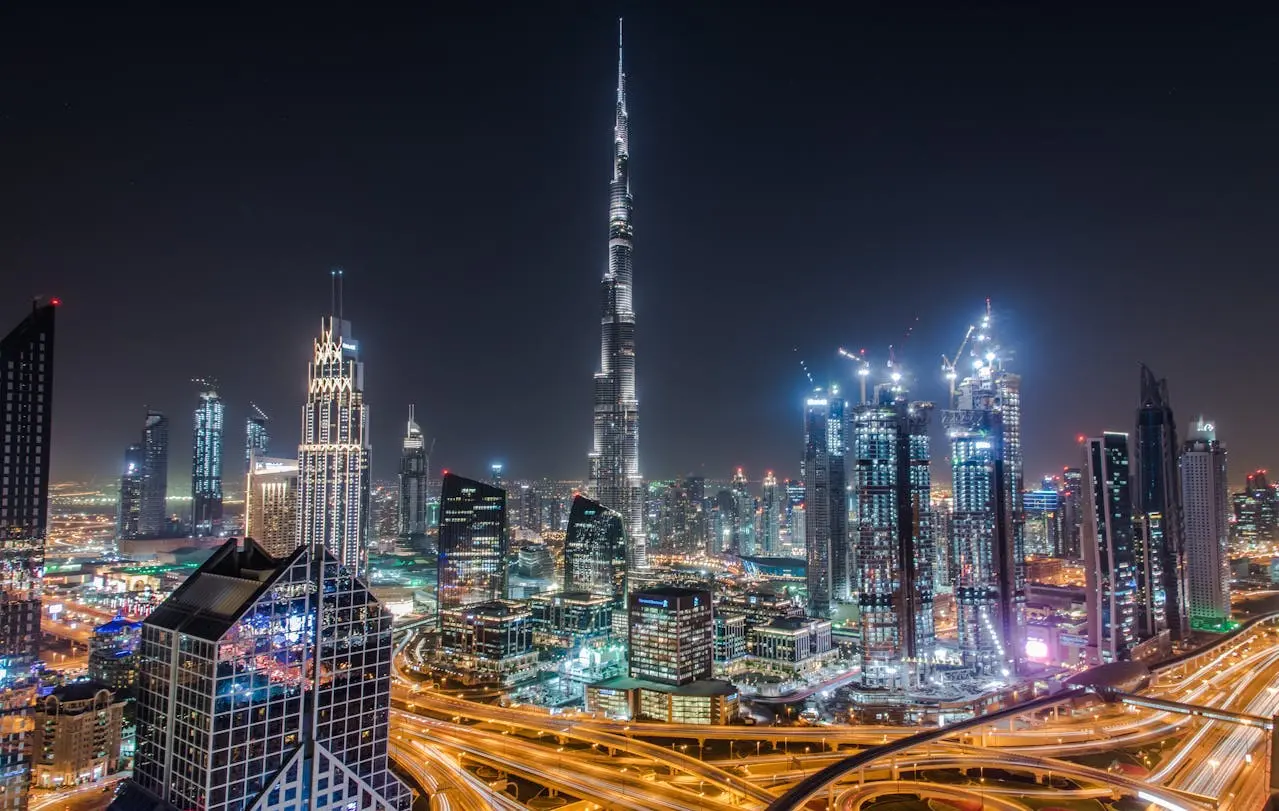
Dubai offers 340 days of sunshine per year, with winter averaging 24 degrees and summer highs of 40 degrees. Turkish nationals may find the weather similar to Antalya, although Dubai has an arid climate with lower levels of humidity and zero snowfall. The infrastructure is designed for year-round comfort with shaded pathways, air-conditioning on public transport, and in shopping malls.
Over 10,000 Turkish citizens now call Dubai their home. This growing expat population is supported by The Turkish Business Council in Dubai – regularly organising national celebrations, events, and networking opportunities. Dozens of Turkish restaurants have opened across the city and brands like Mado, Simit Sarayi, and Kahve Dünyası have a presence in major shopping malls.
As a multi-cultural city that welcomes expats from around the world, Dubai is exceptionally family friendly. Over 200 private schools offer curriculums including British, American, and IB. Nurseries are internationally renowned for their superb facilities. World-class healthcare includes over 40 accredited hospitals with staff speaking multiple languages, including Turkish.
The flight time from Dubai to Istanbul is 4.5 hours with more than 10 direct flights operated daily by airlines including Emirates, Turkish Airlines, FlyDubai, and Pegasus. Turkish investors can travel to Dubai as easy as they can travel to European capitals. Dubai International Airport (DXB) is the busiest airport in the world with direct flights to more than 240 global destinations.
English is spoken by more than 85% of the population that live in Dubai. English is especially used in business, real estate, banking, and legal services. Many agencies and international corporations may have Turkish-speaking staff available. Turkish residents enjoy religious freedom, respect for their traditions, and the ability to celebrate national holidays with their local community.
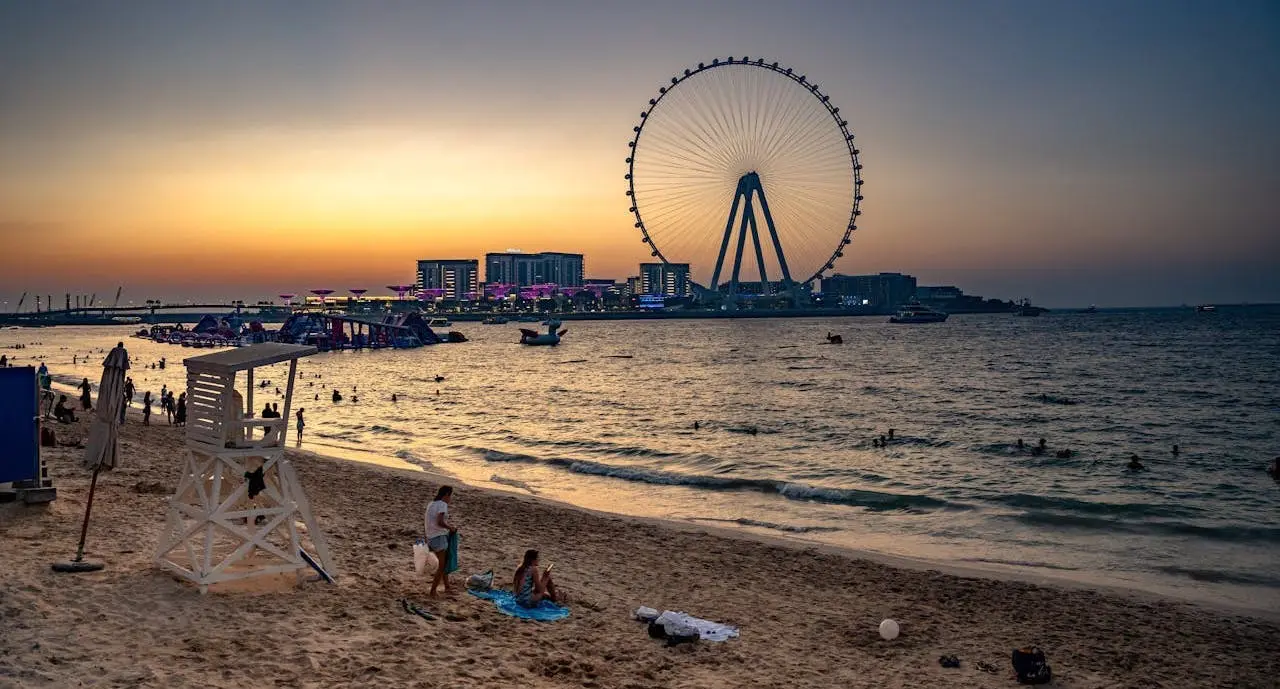
Investor Profile: An Istanbul-based businessman aged 42 and looking to diversify from Turkish real estate investments. The investor purchased a 2-bedroom apartment in Dubai Marina in 2023 for AED 2.4 million and successfully obtained a 10-year UAE Golden Visa. The flat has been rented out via Airbnb, generating a rental yield of 8.1% per annum net while appreciating by 11% in 14 months due to the strong market in the Marina area.
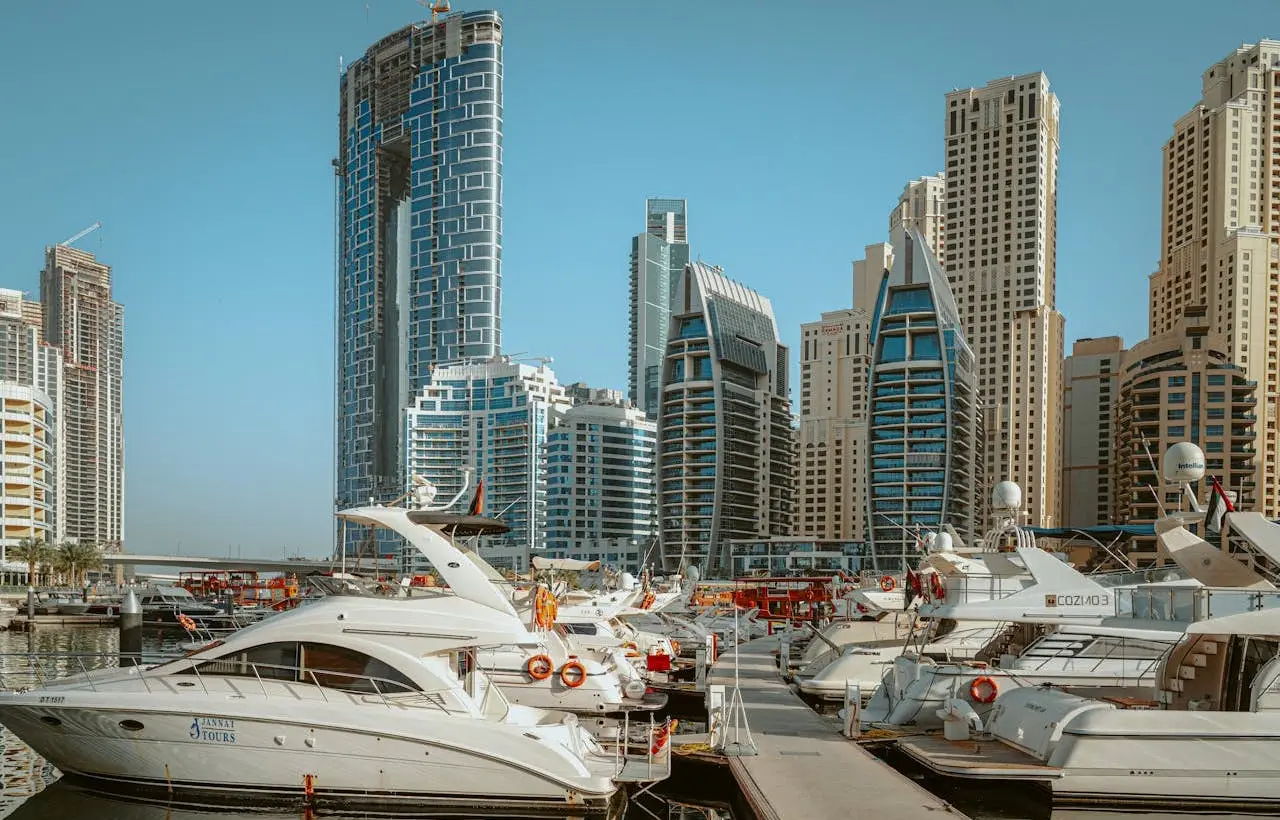
Place Overseas is the partner of PropertyTurkey.com – one of the most trusted names in the Turkish real estate market since 2001. With deep understanding of the expectations from Turkish buyers and a dedicated Dubai team, Place Overseas offers a seamless experience to becoming a property owner in Dubai.
Our Dubai consultants speak your language, live in your city, and understand your concerns as Turkish citizens investing internationally. With our local Turkish office in Şişli, Istanbul, our team ensures that you are supported every step of the way.
Our presence in Turkey and Dubai allows us to:
- Offer in-person consultations at our offices in Istanbul.
- Send offers and assist with property selection from Turkey.
- Organise on your behalf through legal steps and paperwork.
- Support Golden Visa applications and opening bank accounts.
If you are a Turkish citizen looking to invest in the UAE, relocate to Dubai, or diversify assets on a global scale, Place Overseas is proud to be your bridge between Turkey and Dubai. Our expert team will guide you with confidence and care as The Home of True Advice.
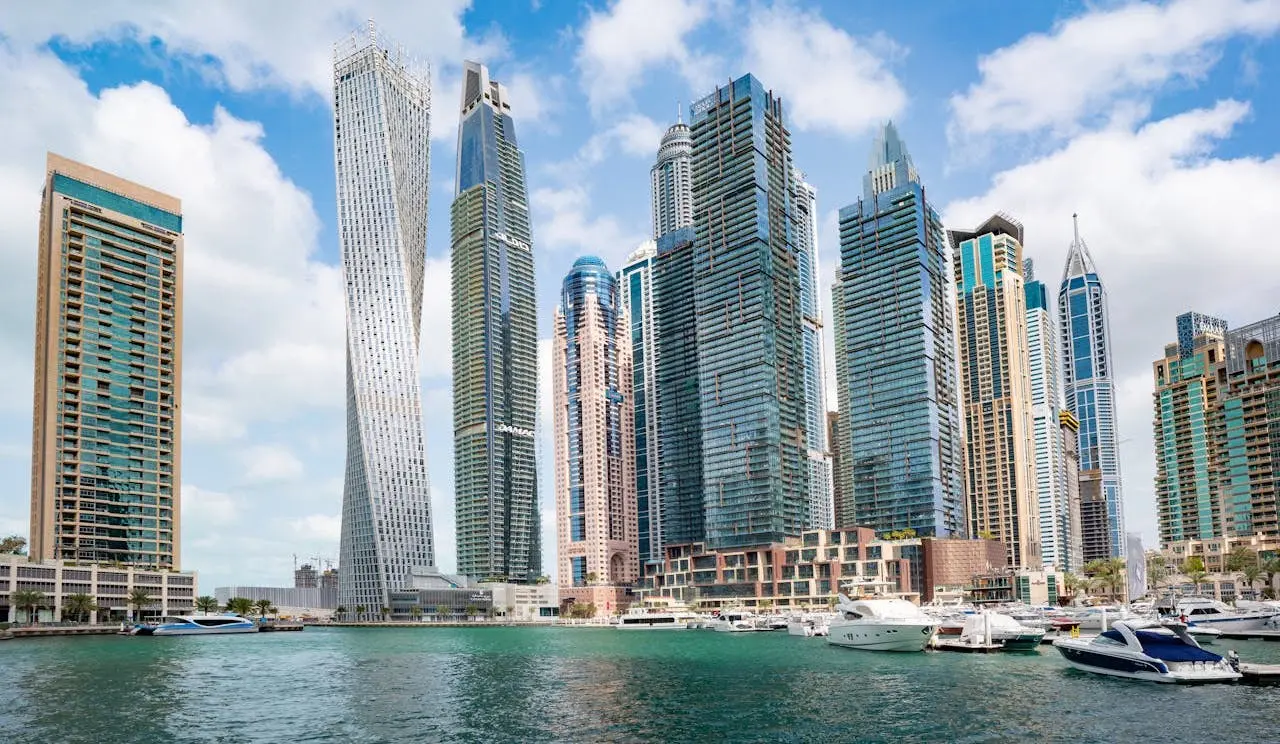
A: Yes. Citizens of Turkey can purchase freehold properties in Dubai’s designated zones. These properties have 100% ownership rights.
A: Yes. Purchasing property for more than AED 750,000 can qualify you for a residency visa. Purchasing a property for AED 2 million or more can qualify you for a 10-year Golden Visa.
A: The currency for purchasing is AED. However, international transfers can be made in USD, GBP, EUR, or TRY and then converted locally into AED.
A: No. Some investors from Turkey choose to purchase remotely through Power of Attorney (POA). Our local offices in Istanbul can assist you with that.
A: Yes. Property owners in Dubai can rent out their investments on a short-term or long-term basis, with rental yields ranging from 6% to 10% depending on area.
A: Property owners in the UAE pay zero annual property taxes, zero rental income taxes, and zero capital gains taxes.
A: Yes. After obtaining a residency visa, you can open a bank account. Popular banks used by Turkish citizens include: HSBC, Emirates NBD, and Mashreq.
A: If you are a tax resident in Turkey, you must declare your overseas property rental income according to tax laws in Turkey. Dubai does not tax rental income locally.
A: Yes. If you register a DIFC Will (Dubai International Financial Centre). This ensures that the inheritance process would follow Turkish law.
